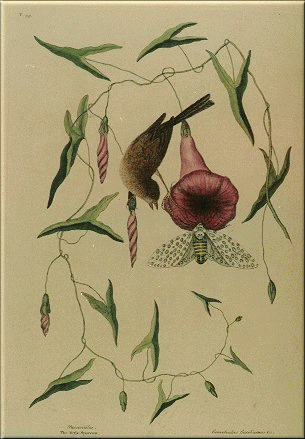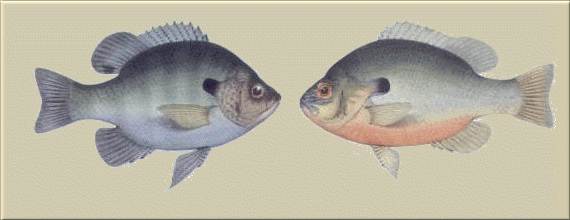
Volume 4

May, 1852 - February, 1853




If you would attain insight, avoid anatomy.
Of what significance the things you can forget?
A little thought is sexton to all the world.
It has ever been considered a crime, even among warriors, to cut down a nation's woods.
All things in this world must be seen with the morning dew on them, must be seen with youthful, early-opened, hopeful eyes.
Where the most beautiful wild flowers grow, there man's spirit is fed, and poets grow.
Nature has looked uncommonly bare and dry to me for a day or two. With our senses applied to the surrounding world we are reading our own physical and corresponding moral revolutions. Nature was so shallow all at once I did not know what had attracted me all my life. I was therefore encouraged when, going through a field this evening, I was unexpectedly struck with the beauty of an apple tree. The perception of beauty is a moral test.

Nature is reported not by him who goes forth consciously as an observer, but in the fullness of life. To such a one she rushes to make her report. To the full heart she is all but a figure of speech.
How cool and assuaging the thrush's note after the fever of the day! I doubt if they have anything so richly wild in Europe. So long a civilization must have banished it. It will only be heard in America, perchance, while our star is in the ascendant.
A thrumming of piano strings beyond the garden and through the elms. At length the melody steals into my being. I know not when it began to occupy me. By some fortunate coincidence of thought or circumstance I am attuned to the universe, I am fitted to hear, my being moves in a sphere of melody, my fancy and imagination are excited to an inconceivable degree. This is no longer the dull earth on which I stood. It is possible to live a grander life here; already the steed is stamping, the knights prancing; already our thoughts bid a proud farewell to the so-called actual life and its humble glories. Now this is the verdict of a soul in health. But the soul diseased says it own vision and life alone is true and sane. What a different aspect will courage put on the face of things! This suggests what a perpetual flow of spirit would produce.

I only know myself as a human entity, the scene, so to speak, of thoughts and affections, and am sensible of a certain doubleness by which I can stand as remote from myself as from another. However intense my experience, I am conscious of the presence and criticism of a part of me which, as it were, is not a part of me, but spectator, sharing no experience, but taking note of it, and that is no more I than it is you. When the play -- it may be the tragedy of life -- is over, the spectator goes his way. It was a kind of fiction, a work of the imagination only, so far as he was concerned.
No man ever makes a discovery, ever an observation of the least importance, but he is advertised of the fact by a joy that surprises him. The powers thus celebrate all discovery.
I cannot conceive how a man can accomplish anything worthy of him, unless his very breath is sweet to him. He must be particularly alive.
What are these rivers and hills, these hieroglyphics which my eyes behold? There is something invigorating in this air, which I am peculiarly sensible is a real wind, blowing from over the surface of a planet. I look out at my eyes, I come to my window, and I feel and breathe the fresh air. It is a fact equally glorious with the most inward experience. Why have we ever slandered the outward? The perception of surfaces will always have the affect of miracle to a sane sense.

Men commonly talk as if genius were something proper to an individual. I esteem it but a common privilege, and if one does not enjoy it now, he may congratulate his neighbor that he does. There is no place for man-worship. We understand very well a man's relation, not to his genius, but to the genius.
We live too fast and coarsely, just as we eat too fast, and do not know the true savor of our food.
One moment of life costs many hours, hours not of business but of preparation and invitation. Yet the man who does not betake himself at once and desperately to sawing is called a loafer, though he may be knocking at the doors to heaven all the while, which shall surely be opened to him. The aim in life is highest which requires the highest and finest discipline. How much, what infinite leisure it requires, as of a lifetime, to appreciate a single phenomenon! You must camp down beside as for life, having reached your land of promise, and give yourself wholly to it. It must stand for the whole world to you, symbolical of all things. The least partialness is your own defect of sight and cheapens the experience fatally. Unless the humming of a gnat is as the music of the spheres, and the music of the spheres is as the humming of a gnat, they are naught to me.
It is remarkable that many men will go with eagerness to Walden Pond in the winter to fish for pickerel and yet not seem to care for the landscape. Of course it cannot be merely for the pickerel they catch; there is some adventure in it; but any love of nature which they may feel is certainly very slight and indefinite. They call it going a-fishing, and so indeed it is, though, perchance, their natures know better. Now I go a-fishing and a-hunting every day, but omit the fish and the game, which are the least important part. They were indispensable only as long as I was a boy. I am encouraged when I see a dozen villagers drawn to Walden Pond to spend a day in fishing through the ice, and suspect that I have more fellows than I knew, but I am disappointed and surprised to find that they lay all the stress on the fish which they catch or fail to catch, and on nothing else, as if there were nothing else to be caught.
















